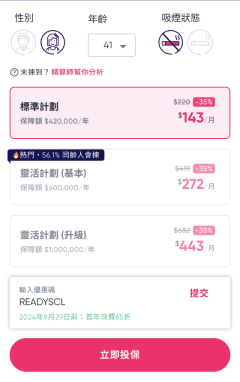Policyholder vs Insured Person
Definition of The Policyholder
The policyholder (also known as the applicant of the insured) is the person who applies for insurance. The policyholder is responsible for handling related insurance matters, such as changing policy information and surrendering the policy.
Compared to the insured person, the policyholder has the highest control over the policy. Generally, the policyholder must be over 18 years old.
Definition of The Insured Person
The insured person is the person who is protected by the policy. The policyholder and the insured person can be the same person or different person.
In addition, the premiums of the policy will be based on factors of the insured person, such as the age, physical condition, and lifestyle.
Who can be an insured person for medical insurance?
Many people purchase insurance for their partners or children but can you purchase insurance for your fiancé/fiancée, colleague, or even friend, and make them the insured person?
In fact, there must be an “insurable interest” between the policyholder and the insured person for the policy to be established. “Insurable interest” means that if the insured person unfortunately becomes ill, injured, or even dies, it will cause emotional and economic losses to the policyholder.
Generally, people who have a blood relationship or a family relationship with the policyholder, such as spouses and children under 18, will have insurable interest.
In addition to the above blood relationship or family relationship, in some cases, your debtor, business partner, or important employee can also have insurable interest, allowing you to purchase insurance for them. However, the decision to accept insurance varies between companies.
If there is no insurable interest between the policyholder and the insured person, the policyholder cannot exercise the rights assigned by the policy.
It is worth mentioning that even if there are changes in insurable interest after the policy becomes effective, the policy remains valid.
For example, if the policyholder and the insured person were originally a married couple, the policy would still be valid even if they divorced after the policy became effective.
Who can be a policyholder?
There are no specific requirements for the policyholder for Voluntary Health Insurance Scheme (VHIS) , so the eligibility of the policyholder mainly depends on the requirements of different insurance companies.
For example, for Bowtie, the policyholder for VHIS must:
- be a Hong Kong resident,
- be located in Hong Kong,
- have a Hong Kong address, and
- be over 18 years old.
Who can enjoy tax deductions for VHIS?
If the policyholder of the VHIS is an individual income taxpayer or their spouse, they can apply for tax deductions for all the policies they purchased.
Definition of Specified Relatives
When it comes to VHIS tax deductions, the insured person of the policy must be specified relatives of the policyholder.. Below are the specified relatives of the Policyholder:
- Spouse;
- Parents, grandparents, or great-grandparents of you or your spouse who are 55 years of age or older or who are younger than 55 years of age but qualify for the government disability allowance;
- Unmarried children or siblings of you or your spouse who are:
- Under 18 years of age;
- Between 18 and 25 years of age, and enrolled in full-time education in a university, college, school, or similar educational institution; or
- Over 18 years of age but unable to work due to physical or mental disability.
FAQs about Policyholders of VHIS
No, the policyholder can only purchase VHIS for specified relatives which are clearly defined by the Health Bureau. For more information about tax deduction for VHIS, please refer to this article: “VHIS Tax Deduction Guide“.
Yes, there is no limit to the number of specified relatives for whom a Policyholder (also the taxpayer) can apply for tax deductions. If you have any questions about tax deductions for VHIS, please read this article for more information.
